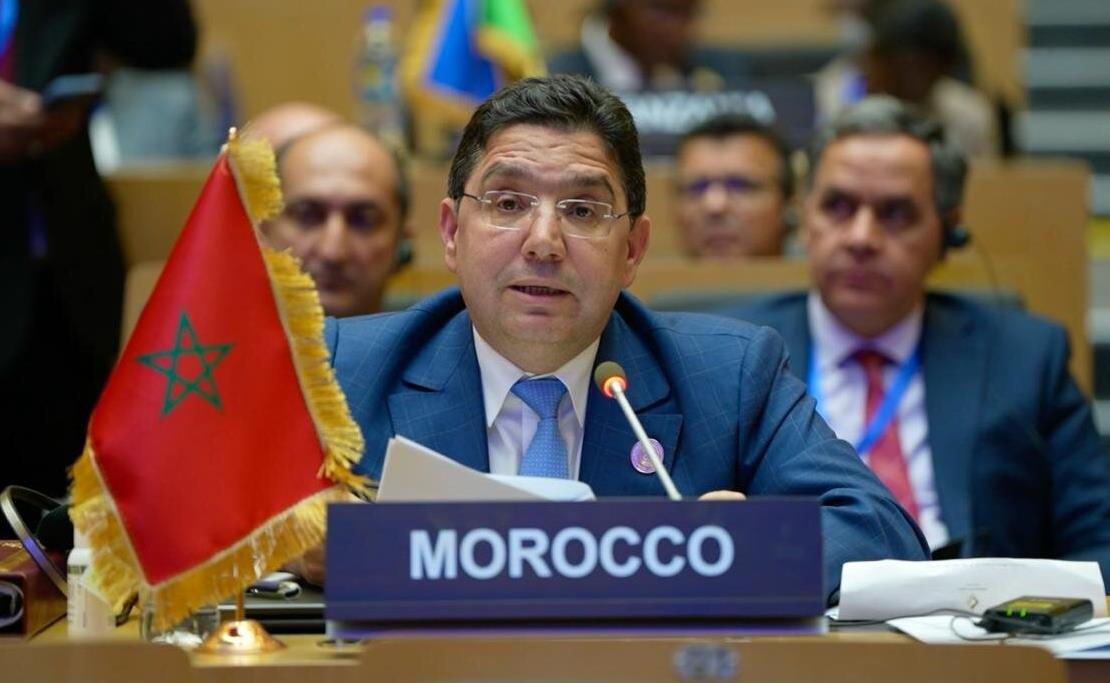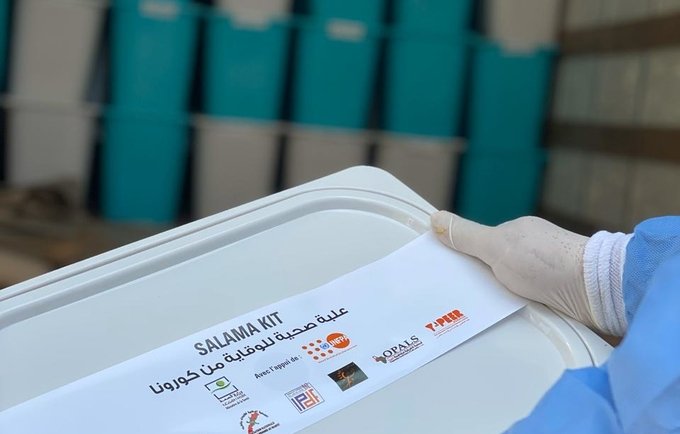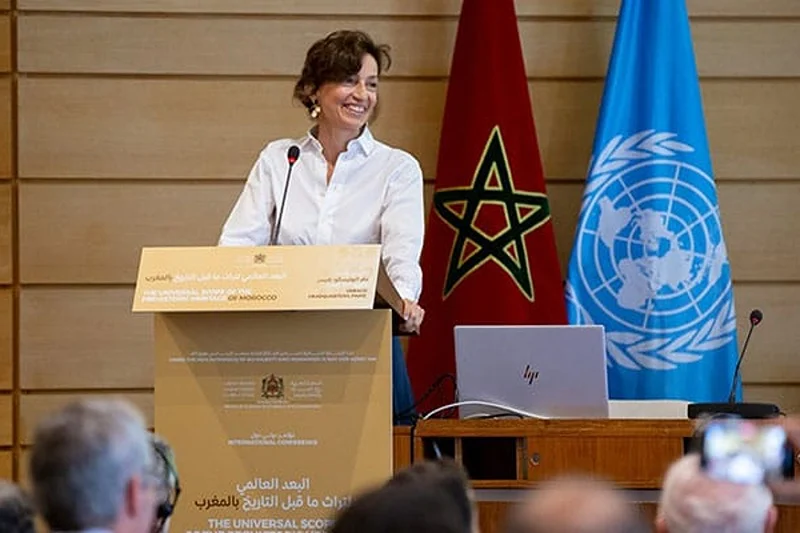Morocco’s commitment to achieving development goals in Africa is part of the strategic vision of King Mohammed VI, said Minister of Foreign Affairs, Nasser Bourita, who is representing the Sovereign at the 37th African Union Summit being held Saturday and Sunday in Addis Ababa.
Bourita recalled in this regard that the King stressed in his speech to the African Union, on January 31, 2017, the importance of fostering the emergence of a new Africa, which can transform its challenges into genuine potential for development and stability.
Based on this conviction, Morocco has consistently sought to make its contribution to the process of implementing the programs and activities of Agenda 2063, as well as to the debates on the evaluation of the first ten-year plan and the strategic orientation of the development and implementation of the 2nd ten-year plan of this agenda, reaffirmed the Minister during the examination of item II.b on the evaluation report of the first ten-year implementation plan and adoption of the second ten-year plan by Alassane Ouattara, president of Côte d’Ivoire, leader of the follow-up to the implementation of the African Union’s Agenda 2063.
For the Kingdom, it is fundamental to develop a resource mobilization strategy, Bourita said, adding that Morocco reiterates its proposal to create a Development Fund similar to the Peace Fund, in order to provide the necessary financial support for the implementation of the 2nd ten-year plan.
The Marrakech Declaration issued from the high-level African ministerial meeting on accelerating the financing of Africa’s emergence, organized on the sidelines of the Annual Meetings of the World Bank Group and the International Monetary Fund, held on October 1, 2023 in Marrakech, decided to set up a working group to enable African countries to exchange best practices in development financing, recalled the Minister.
The realization of the vision of Africa we want can only be achieved through a strong involvement of the Regional Economic Communities (RECs) in the development process, working within the framework of operational synergies with the AU in general and AUDA-NEPAD in particular, insisted Bourita.
In addition to the RECs, the Kingdom is also advocating the strengthening of continental structures dedicated to African youth, who today represent 41% of the African population, the Minister underlined.
Bourita also stressed the need to establish regular monitoring mechanisms, in particular by setting up a dashboard enabling us to identify delays and obstacles in good time.
The Kingdom of Morocco supports president Alassane Ouattara’s proposals, particularly the one calling for an Extraordinary Summit to be held in Abidjan “to deepen the commitment of African leaders, and increase ownership, awareness and visibility of the 2nd ten-year plan of Agenda 2063”, said the Minister.
At this meeting, Morocco paid a vibrant tribute to Alassane Ouattara, Champion of the African Union for the implementation of Agenda 2063, for his tireless efforts, involvement, and leadership in achieving the aspirations and strategic objectives of Agenda 2063.
During the examination of point 2c1 on the report of the AU Peace and Security Council (PSC) on its activities and on the state of peace and security in Africa (January-December 2023), Bourita pointed out that peace, security and development go hand in hand, hence the importance of a holistic, integrated and multidimensional approach, based on a close overlap between these three dimensions.
Bourita stressed the need to recognize the value of discussion platforms on this overlap, emphasizing in this regard that the processes of Tangier, Aswan, Dakar, Luanda and Lomé form a hub of ideas, and fruition of such an approach where development stands as the first bulwark against instability and insecurity, aligned with the ten-year plan of Agenda 2063.
“While we are halfway to implementing the 2030 Silencing the Guns in Africa strategy, the continued emergence of areas of tension raises pressing questions. In 2030, our assessment must be positive, but this momentum for success will undoubtedly depend on our ability to weave a resilient network of peace within the continent, stressed the Moroccan official during the examination of point 2c1 on the report of the AU Peace and Security Council (PSC) on its activities and on the state of peace and security in Africa (January-December 2023).



